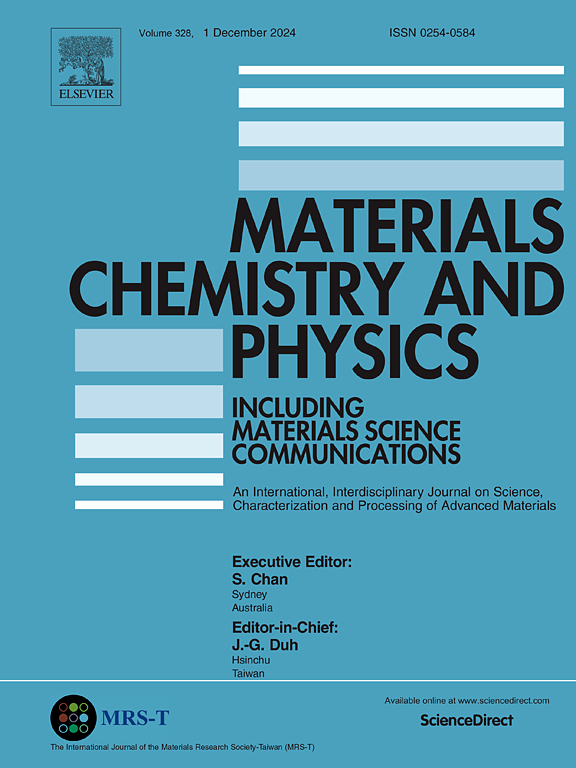4-甲基苯酚在奶牛和人类嗅觉受体上吸附对接机制的新见解:分子对接模拟统计物理模型
IF 4.3
3区 材料科学
Q2 MATERIALS SCIENCE, MULTIDISCIPLINARY
引用次数: 0
摘要
应用分子统计物理理论,建立了改进的单能量单层模型,从微观和宏观上分析了与嗅觉相关的对接过程。因此,研究了通过数值模拟估计的三个物理化学参数,即每个OR9Q2结合袋对接的4-甲基苯酚数量(n)、半饱和浓度(Ci)和饱和嗅觉响应(RM)。事实上,拟合结果表明,奶牛的btOR9Q2表现出迄今为止最高的活性,对4-甲基苯酚的最大嗅觉反应比人类的hOR9Q2增加了10倍。4-甲基苯酚分子以非平行方向停靠在btOR9Q2和hOR9Q2结合口袋上。4-甲基苯酚分子与btOR9Q2和hOR9Q2的结合袋之间的相互作用本质上是放热的,通过物理吸附发生。微观上,可以推断统计物理和分子对接研究是互补的,并且对对接机制提供了实验无法实现的高精度。通过研究支配牛和人嗅觉系统的三个热力学势(即吉布斯自由能G、内能Eint和构型熵Sa),对所研究的嗅觉系统进行了宏观解释。最后,调整后的模型参数还可以通过计算口袋大小分布(psd)和吸附能分布(aed)来定量表征btOR9Q2和hOR9Q2。本文章由计算机程序翻译,如有差异,请以英文原文为准。
New insights into the docking mechanism of 4-methylphenol adsorption on cow and human olfactory receptors: Molecular docking simulation statistical physics modeling
A modified one-layer model with single energy was applied to microscopically and macroscopically analyze the process of docking implicated in the smell sense by applying the molecular statistical physics theory. Hence, three physicochemical parameters estimated using numerical simulation, namely the number of docked 4-methylphenol per OR9Q2 binding pocket (n), half-saturation concentration (Ci), and saturation olfactory response (RM), were investigated. Indeed, the fitting results indicated that the cow btOR9Q2 presented by far the highest activity, displaying a tenfold increased maximum olfactory response to 4-methylphenol than the human hOR9Q2. The 4-methylphenol molecules were docked on btOR9Q2 and hOR9Q2 binding pockets with a nonparallel orientation. The interactions between the 4-mythylphenol molecules and the binding pockets of btOR9Q2 and hOR9Q2 were exothermic in nature and occurred via physical adsorption. Microscopically, it may be deduced that the statistical physics and the molecular docking investigations were complementary and presented a high level of precision for the mechanism of docking that cannot be achieved by experiments. The macroscopic interpretation of the studied olfactory systems was performed through the investigation of three thermodynamic potentials (i.e., the Gibbs free energy G, the internal energy Eint, and the configurational entropy Sa), which governed the cow and human olfactory systems. Lastly, the adjusted parameters of the used model may also be applied to provide access to quantitative characterization of btOR9Q2 and hOR9Q2 by calculating the pocket size distributions (PSDs) and the distributions of the adsorption energies (AEDs).
求助全文
通过发布文献求助,成功后即可免费获取论文全文。
去求助
来源期刊

Materials Chemistry and Physics
工程技术-材料科学:综合
CiteScore
8.70
自引率
4.30%
发文量
1515
审稿时长
69 days
期刊介绍:
Materials Chemistry and Physics is devoted to short communications, full-length research papers and feature articles on interrelationships among structure, properties, processing and performance of materials. The Editors welcome manuscripts on thin films, surface and interface science, materials degradation and reliability, metallurgy, semiconductors and optoelectronic materials, fine ceramics, magnetics, superconductors, specialty polymers, nano-materials and composite materials.
 求助内容:
求助内容: 应助结果提醒方式:
应助结果提醒方式:


